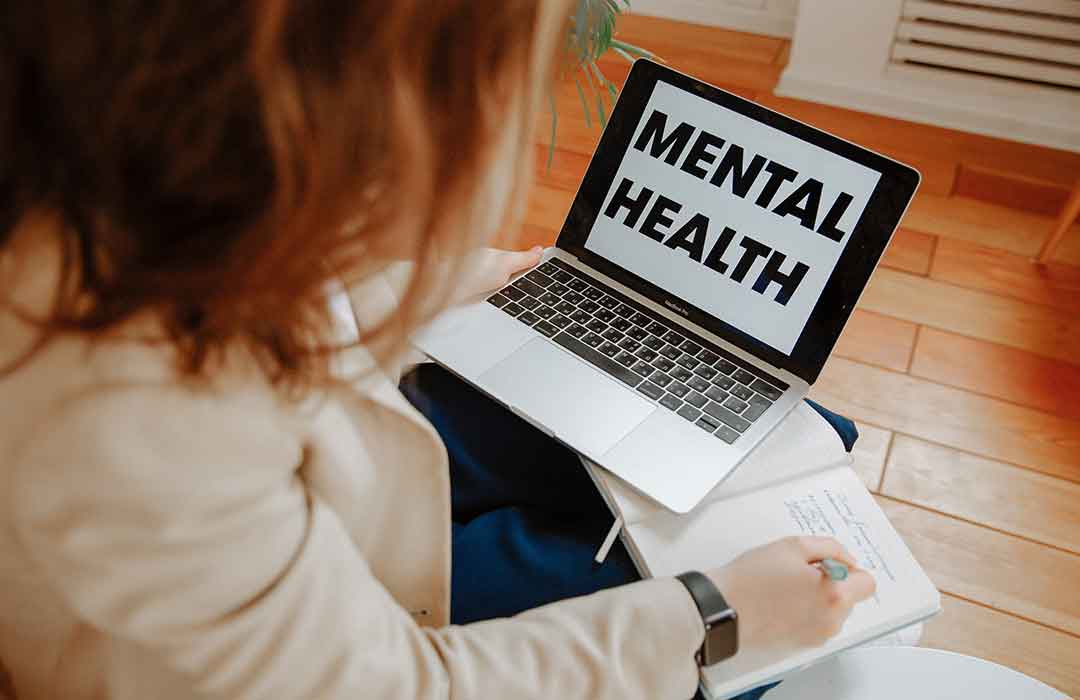
World Mental Health Day is observed annually on October 10th in over 100 countries to promote mental health awareness and advocate for individuals with mental health issues. Since its inception in 1992, World Mental Health Day has helped to expand knowledge, advocate against social stigmas, and support people suffering from a wide range of mental disorders.
Our mental health is comprised of our emotional, psychological, and social wellbeing. You can observe World Mental Health Day by improving your own knowledge about mental health, raising awareness, and supporting local, regional, and national organizations that are dedicated to these efforts year-round.
Mental Health Facts and Stats: What Is Mental Health? Mental Illness?
The mental health statistics available to us today prove that understanding and prioritizing our mental health is more important than ever before. In addition, it shows just how many people are struggling with mental health issues, which aren’t always obvious to the people around them. We must remember that our loved ones, our neighbors, the people we pass on the street, could be fighting battles that we know nothing about, and remember to be kind.
For example, in 2017, there were an estimated 46.6 million adults in the US who had a mental illness. That’s 18.9% of the US adult population. Here are a few additional facts and statistics from the National Institute of Mental Health (NIMH) that can help us better understand mental health and the prevalence of mental illness:
- Mental health is defined as a satisfactory psychological state, in which someone is emotionally well and able to function properly.
- A mental illness (or mental health disorder) is a condition that affects mood, thinking, and behavior.
- In 2017, mental illness was most prevalent among young adults or those between 18 and 25 years of age. According to NIMH, 25.8% had a mental illness.
- Additionally, 11.2 million US adults (or 4.5%) suffered from a serious mental illness, such as severe major depression and schizophrenia.
- If serious mental illnesses are left untreated, they can lead to suicide. In 2018, suicide was the tenth leading cause of death in the US, killing 48,000 people.
- In addition, suicide was the second leading cause of death among individuals between the ages 10 and 34, and the fourth leading cause of death among those between 25 and 54 years.
Common symptoms of widespread mental illnesses like depression are feelings of worthlessness, unwanted thoughts, and suicidal ideation. These symptoms are difficult to manage on our own and often require mental health treatment. Fortunately, more and more people are reaching out for a professional’s help. According to NIMH, in 2017, of the 11.2 million US adults with a serious mental illness, 7.5 million (or 66.7%) sought and received mental health treatment.
What Should I Do on World Mental Health Day?
While the concluding statistic above is promising, there is still important work to do. In continuing to raise mental health awareness and better understand mental health/mental illness ourselves, we break harmful stigmas and give those who are struggling the courage to reach out for help. Hopefully, that 66.7% will continue to increase each year as people receive vital mental health treatment.
So, what can we do today on World Mental Health Day—and every day—to learn and improve mental health awareness?
1) Volunteer.
Volunteer for an organization that supports mental health, such as one that focuses on child and adolescent mental health. Depression is a growing concern among children and organizations such as Big Brothers and Sisters of America, Teen Mental Health, and the National Alliance on Mental Illness and Children’s Mental Health can help locate a local area for you to volunteer and help the youth in your community.
2) Educate.
Consider reading a book to more clearly understand what it’s like to suffer from mental disorders like depression, anxiety, and bipolar disorder. A few renowned books that focus on characters dealing with mental illness include…
- “The Bell Jar” by Sylvia Plath: Plath writes an emotional, realistic tale about a young woman who has a mental breakdown while chasing her dream of becoming a poet.
- “All the Bright Places” by Jennifer Niven: In this novel, two teens who come from drastically different worlds attempt to save each other from their traumas and their suicidal thoughts. Together, they look for new reasons to stay alive.
- “It’s Kind of a Funny Story” by Ned Vizzini: Pulling from his own experiences in a psychiatric hospital, Vizzini writes about a young boy who struggles with unbearable stress and anxiety, which leads to a suicidal episode and his admittance to a mental hospital.
Similarly, you could watch a movie that explores what it is like to experience and work through a mental health issue. Consider watching “Inside Out,” “A Beautiful Mind,” “To the Bone,” or the film adaptations of “All the Bright Places” and “It’s Kind of a Funny Story.”
3) Practice self-care.
You can also honor World Mental Health Day by prioritizing your health and wellbeing! Think of a few things you enjoy that also have enormous benefits for your mental and physical health: exercising, spending time with loved ones, journaling, or painting. Choose an activity that you enjoy engaging in—this shouldn’t feel like work or a homework assignment.
4) Support loved ones.
World Mental Health Day also serves as a reminder to check on our friends and family. You can start with a simple, “How are you doing?” or, “How are you feeling today?” but it’s important to remember that these questions have become so commonplace that many of us don’t answer them honestly. Try something like this instead:
- “I hope you’re doing well! If you ever need anything, know that I’m here.”
- “Man, there is a lot of stressful stuff happening in the world right now! Are you hanging in there okay?”
- “I could really benefit from a vent session. What do you think?!”
These phrases welcome honest answers and might even encourage the individual to confide in you. If they do decide to open up about a mental health struggle, reiterate that you are there to support them and help them find the right help.
5) Talk to a counselor.
Also, consider talking to a counselor yourself. There’s a misconception that only those who are suffering from serious mental health issues need or should talk to a counselor. The truth is that counselors are there to help, guide, and support us all—whether we’re experiencing symptoms of mental illness, feeling stressed out from work, or emotionally drained after a breakup. As we established earlier, we all have our battles. And we shouldn’t feel ashamed of garnering the right help and support for fighting these battles.
Whatever you do, remember that today, World Mental Health Day, is all about understanding the importance of mental health and raising mental health awareness. Additionally, keep in mind that it’s a small piece to a much larger picture. Mental health is important every day; therefore, we must raise awareness and educate ourselves as often as we can.
Let’s keep in touch! Sign up to receive our newsletter:
Start a Relationship with An Exceptional Counselor
- Skilled and caring professional counselors
- Accepting all major and most insurances
- High-touch customer service & premium benefits
- Same- or next-day appointments
- Ultra-flexible 23.5hr cancellations













